




Colleagues, it’s time to act.
We all know climatic changes have become a matter of concern. We need to grab hold of sustainable, eco-friendly event solutions, never let go, and brag about them from rooftops. Does your mission statement communicate your willingness to include sustainable business practices?
There is much more to creating a sustainably focused organization than pledging to save the planet. The topic became public perception as a countermeasure to irresponsible business practices.
Over time, a sustainable approach is not only a great way to capitalize on environmental affairs, but it also truly makes sense from a business perspective.
We need to adopt sustainable event practices to make our earth cleaner and free from toxic elements. The advantages of operating a sustainable organization include conformity with guidelines, a dependable supply chain, increased productivity, customer loyalty, a positive brand image for stakeholders, and a focused strategic blueprint.
When creating an eco-friendly mission statement, keep several perceptions in mind. Mission statements are meant for the masses; they should be easy to understand and speak plainly. They are also cultivated, can be ambiguous, and therefore not essentially reliable, so be concise yet specific. Don’t forget to acknowledge all your stakeholders that create value and a sense of community. And finally, don’t stick to the environment alone. The perception of sustainability involves three components - social, economic, and environmental. Therefore, the concept of giving back socially and economically should be present.
If we don’t act now to clean up our planet, produce greener events, and free ourselves from toxic elements, our day of reckoning is not far away. In The Green Issue, we’ve included various methods and concepts to implement sustainable practices within your organization. We hope you do and enjoy reading this issue of PUSH Magazine!

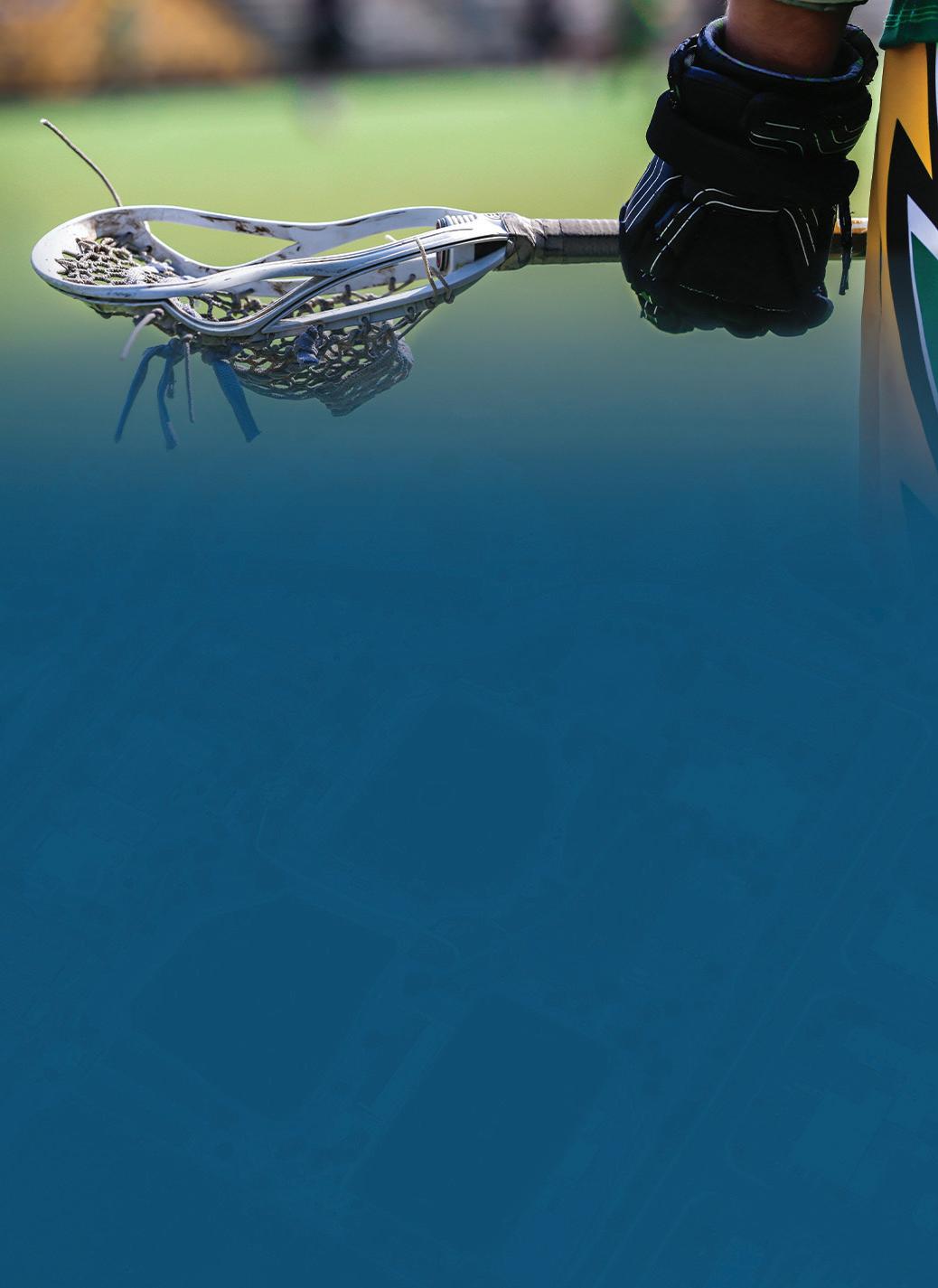


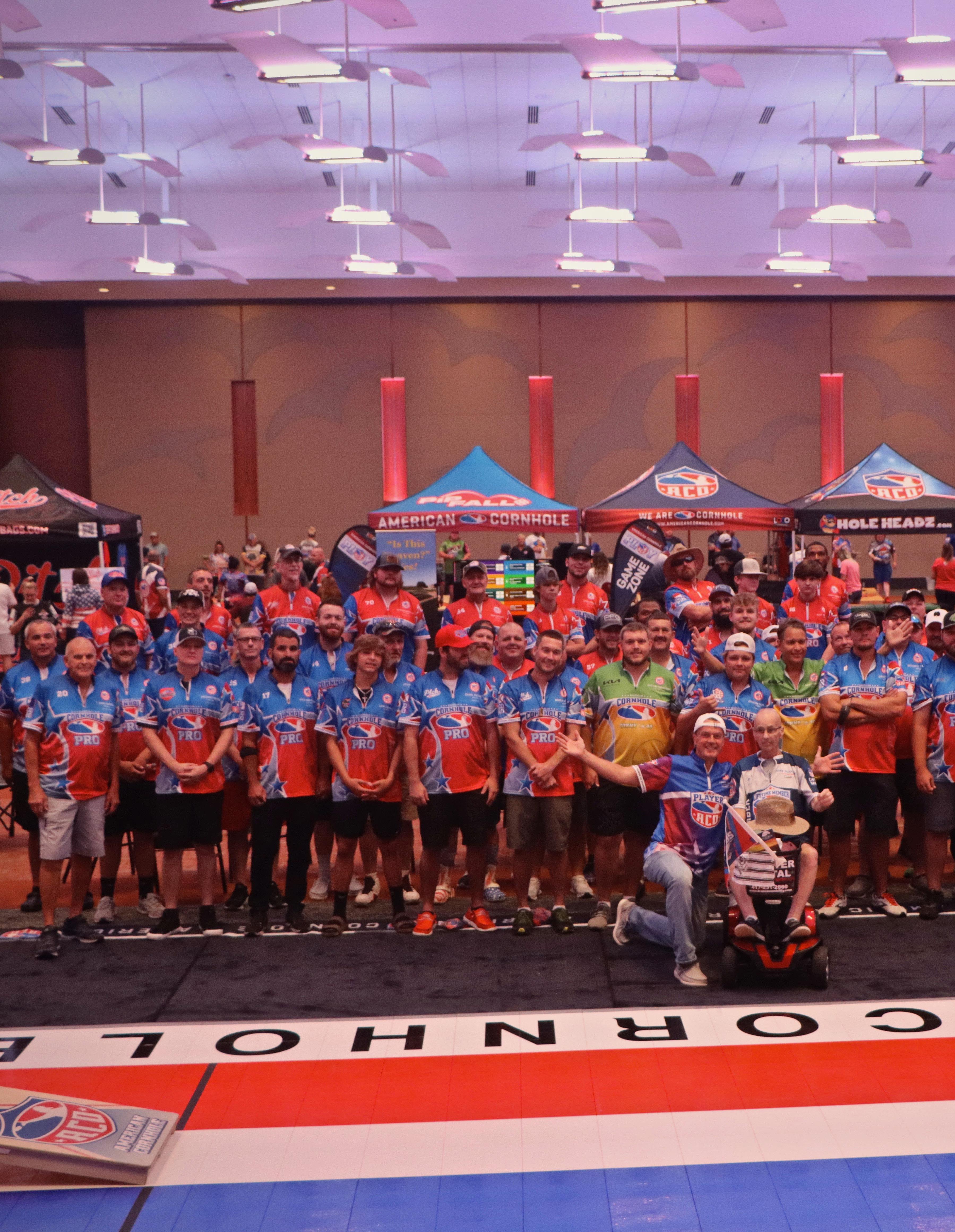
What is your job title and responsibilities?
President and Founder.
What was your first job in the industry?
Founded and organized an annual family and friend golf outings in the 80’s and 90’s referred to as the GBO “ Geers Bologna Open” – biggest year we recognized just short of 100 players coming in from 6 states.

What aspect of your job do you like most?
The people that participate within the organization and the friends I have been able to make over the last two decades in the industry. I really have enjoyed that part of doing what I do. I actually enjoy what I do so much I wouldn’t even consider it a job.
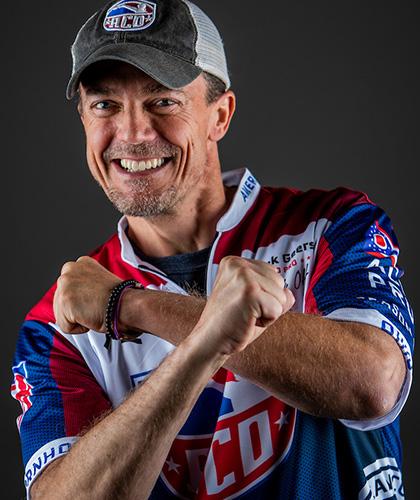
What did you want to be when you grew up?
A doctor, specifically a surgeon.
Worked at my father’s company F. James Geers & Co. which specialized in printing, marketing, fulfillment and promotional products. I was involved with everything from being a warehouse hand to selling. I learned a lot through working with my father and his business.
Do you belong to any civic or volunteer organizations?
Not that I am aware of.
What has been your biggest accomplishment thus far in your career?
I think being featured on the front page of the Wall Street Journal to this day is still one of my favorite accomplishments.
Haphazardly at best; at other times with a firehose. Seriously I try to stay as organized as possible but am constantly juggling to keep all the balls in the air at one time. The hiring of Tina Kandler as the organizations COO was one of my better moves recently. She really has stepped up and helped me bring better structure to our organization. This allows me to do a better job with my daily tasks.
How do you stay on top of sports tourism industry trends?
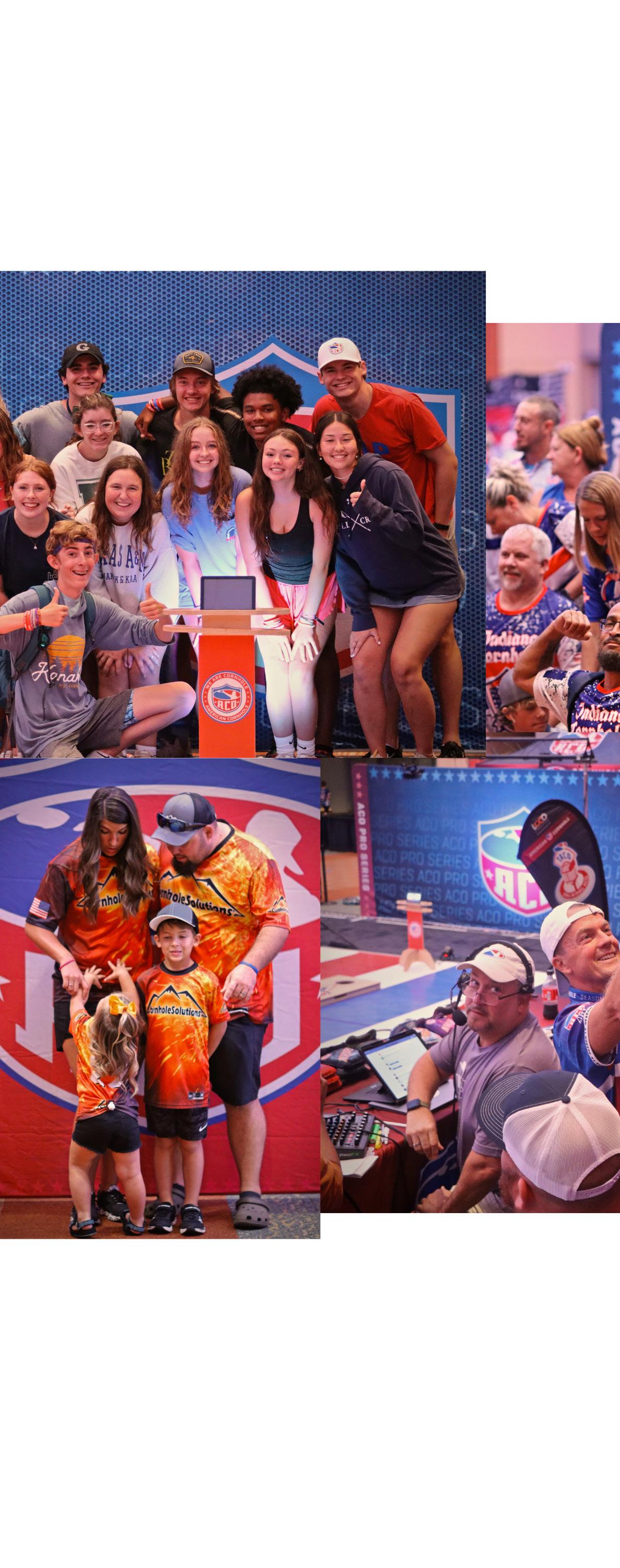
Primarily it is staying very involved with all the industries biggest trade shows: TEAMS, S.P.O.R.T.S, Connect Sports, Sports Congress, Sports E.T.A. etc…
How are you developing key partnerships in the marketplace?
Working with organizations like the NSGA to help expand their offerings to their seniors.
Working with people like Parker Medley from Knoxville, TN; Terra Alphonso from Branson, MO or Sean Walter from Punta Gorda, FL to create annual events that drive a consistent and recognized economic impact annually for their community. We look for partners that want to grow with the ACO. We are not in this for the short term or one off opportunities. We want to create partnerships that allow us to be difference makers.
Who was your greatest mentor?
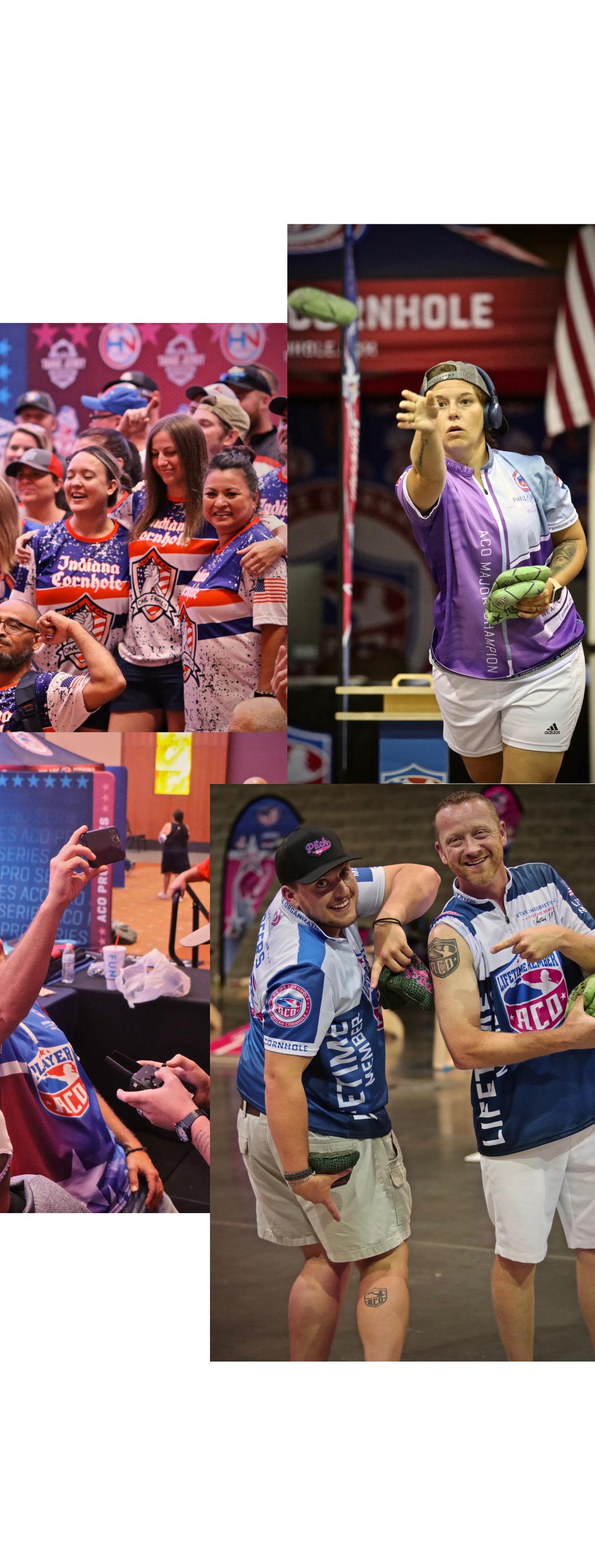
My dad. He showed me how to respect others, work hard and never give up. I would not be the man I am today if it was not for my father. My mom was also a very big part of my life as well. They both meant so much to me and who I’ve become.
What are the top 3 things you’d want to pass on as advice to a young, up and coming industry professional?
NOTHING beats one-on-one interpersonal communication … explore the world outside of your phone/email … OFTEN
Say what you do and then do what you say. Be HONEST.
If you don’t f-up, you aren’t trying hard enough
What are you most passionate about and how did you get started with it?
My number one passion is my family and just trying to be the best provider and mentor to my three boys that I can. I want to lead by example and hope they will become better people for it.
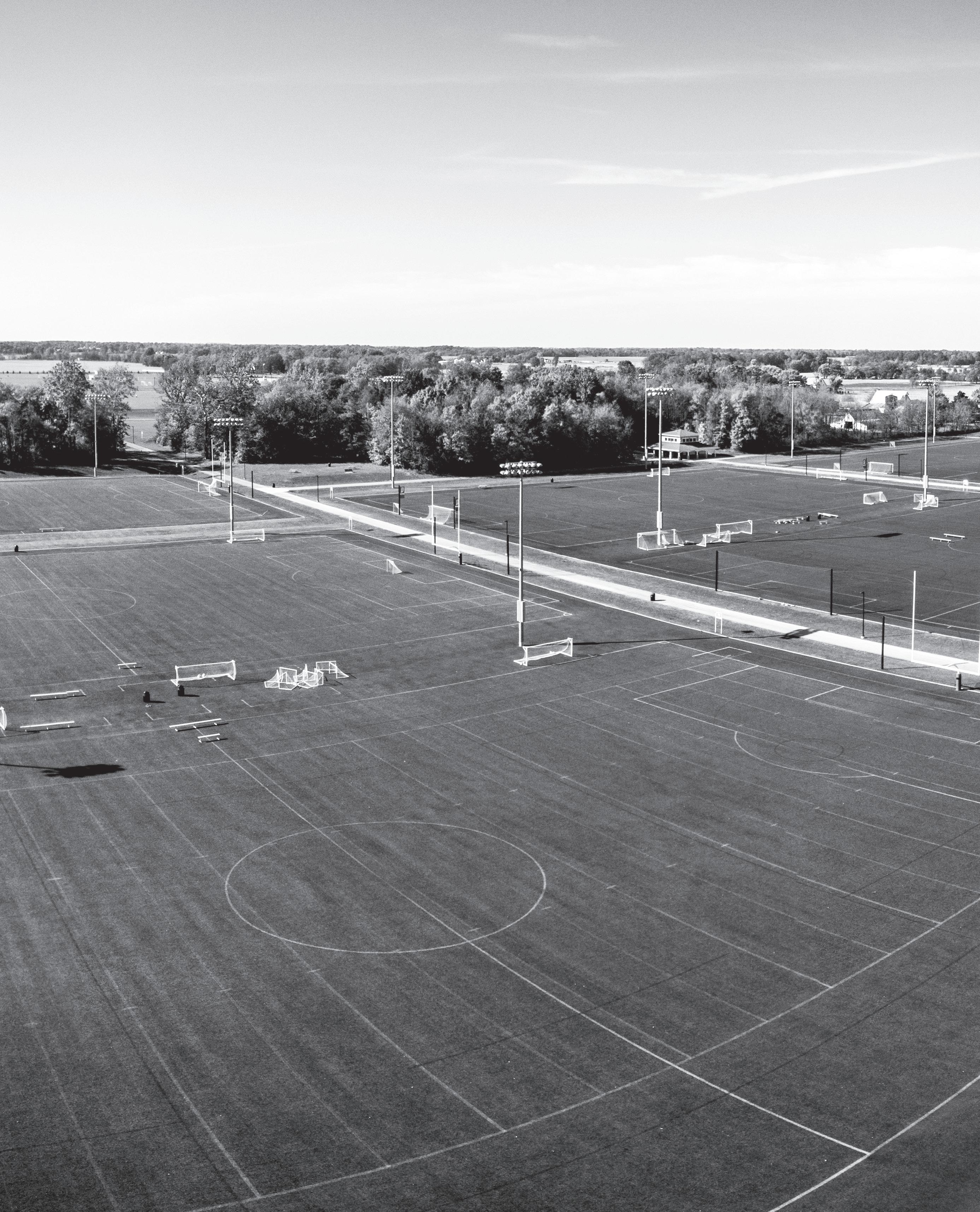
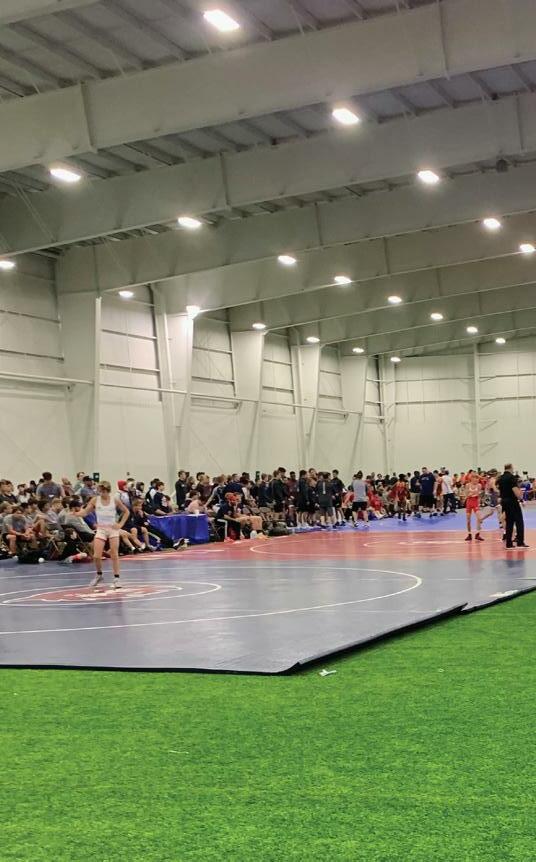







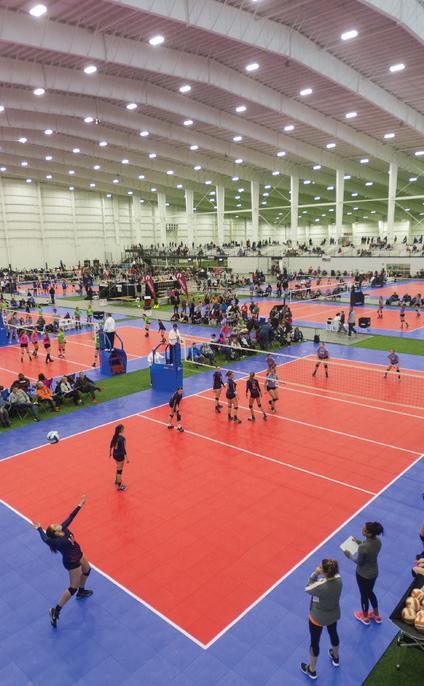
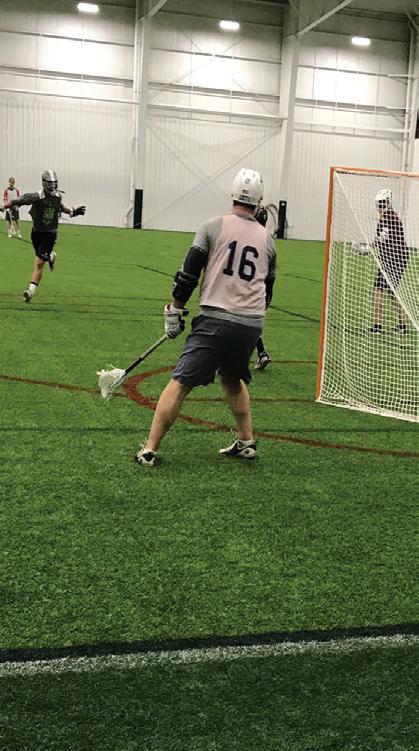
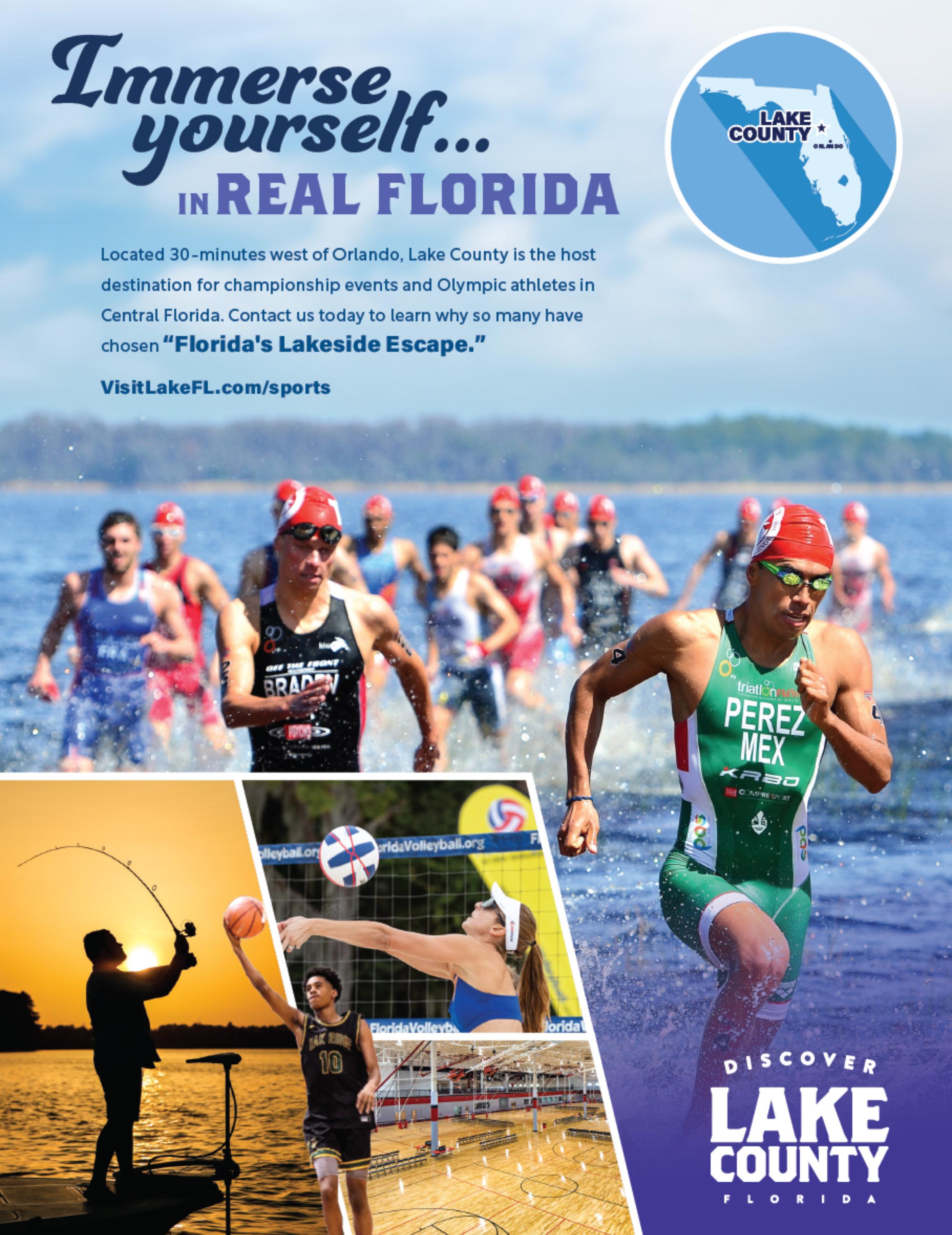
The events we host are meaningful.
They bring people, teams, families, and communities together. They create memories for a lifetime. While we know the value our events bring to a destination, often there are some unfavorables that may also carry a cost. As we look ahead, businesses will need a sustainable approach to events, including considerate actions that minimize negative impacts on the community, event budget, and, specifically, the environment.
Your organization can benefit from a positive rep-
utation while saving time, energy, and resources, while also cutting costs. No wonder we are seeing sustainability efforts pop up more so now across all event types — from festivals, to conferences, and of course, amateur and professional athletic events. You may even earn State and national award recognition for your organization’s sustainability efforts.
Here are six sustainable event effort recommendations:
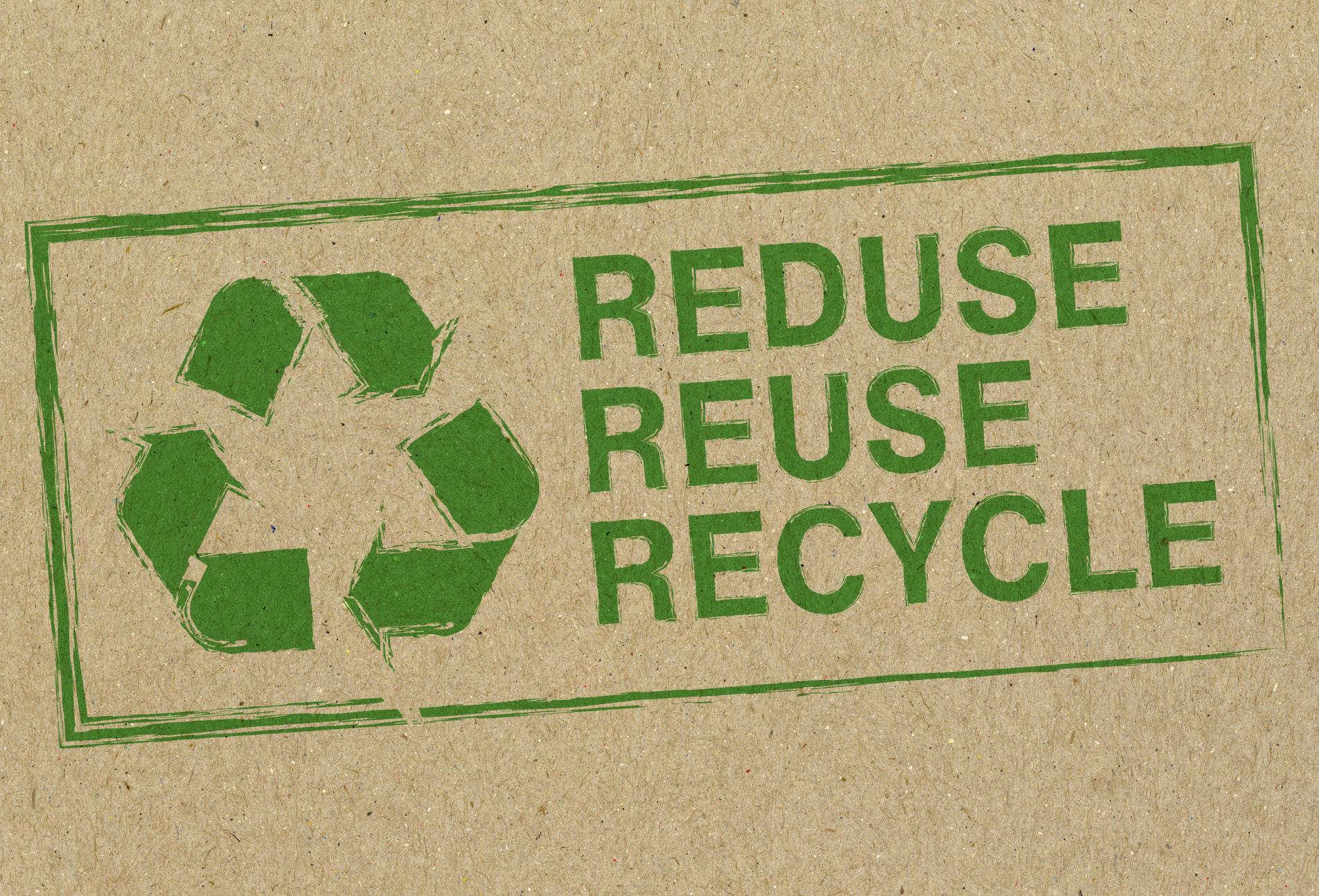
Source a Local Hero
Within every community we all can find an indi-
vidual to lead an event’s sustainability efforts. Doing so will make planning simpler to ensure that you do not create conflicting decisions, such as purchasing compostable dinnerware but not planning to supply recycling bins on-site at an event.

When feasible, do you offer, or add, a service component to your event planning effort? Whether offering a donation to a community charity, the chance to contribute to a service project, or making a contribution to a local team or club to handling parking, concessions, or other valuable event elements, community engagement will increase the positive impact of your event.
Do we really look at and are we influenced by posters and flyers anymore? A digital promotion campaign might be less expensive and more successful minus the environmental impacts of surplus printing.
Location, Location, Location Whenever possible, contemplate hosting an outdoor event during the day. Doing so is enjoyable, does not squash evening plans for your attendees, and more importantly uses reduced energy and is usually less expensive than renting indoor space and using more electricity. Remember when selecting an event site, do consider public transportation options and the availability and number of bike racks.
As you list all the equipment needed to successfully host an event, first, ask yourself, “Do we need this?” This simple, repetitive task will absolutely provide savings to your budget. Consider that not everything needs to be bought. Borrowing, or renting, equipment can be better down the road when considering wear and tear. If purchasing equipment is more cost effective, consider and
plan to purchase items that can be reused such as signage and decor that are non-specific enough to be reused. Below are a few helpful sustainable purchasing ideas:
• Never distribute giveaways that will end up in the trash. Only provide giveaways that your attendees will choose to keep, use, or consume
• Do you often use generators on-site at your events? Try using a biodiesel or solar powered model to reduce footprint.
• When printing event shirts, purchase shirts that have been made from recycled plastic bottles; the fabric is so soft!
• Work with and financially support socially responsible local businesses, if possible.
• Purchase supplies with recycled substances and/or minimized packaging.
The food and beverage options can make or break an event. Great food can even become the highlight of an event. Various sustainable food options are available, such as:
• Serve food and beverage on compostable products. Paper options always work great, and when possible, use compostable tableware.
• Always be sensitive to your attendees by providing vegetarian, vegan, and non-allergic options.
• Support your local suppliers by ordering food from local farmers. This too reduces the distance your food must travel. Additionally, the food will be fresh, rather than food shipped from hundreds or even thousands of miles away.
• Review the foods that are in season during the month your event is taking place. This will not only cut down on cost, and minimize individually packaged food, doing so will also reduce waste.
• Everyone loves pizza, right?! Though providing healthier food choices for event attendees will help build a positive buzz on your efforts.
• Whenever possible, contact a local charity or soup kitchen to donate leftover food. At minimum, be sure leftovers aren’t disposed of — volunteers, especially students, rarely turn down food.
Attempting to reduce event waste is one of the most noticeable ways to make your event sustainable. Providing recycling bins to gather waste at your events never goes unnoticed. Though, what is your plan to ensure the recycling waste is transferred to a recycling center?
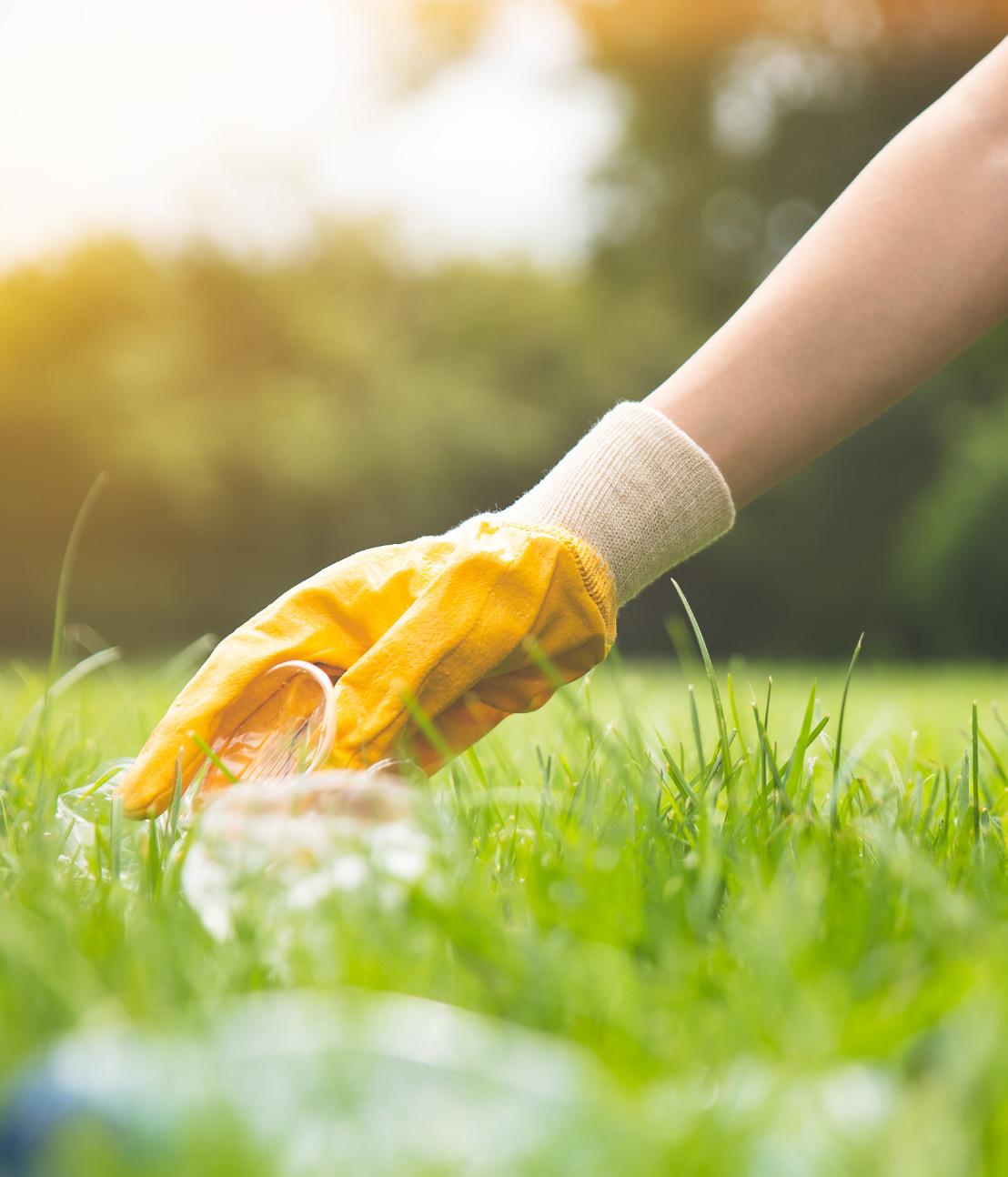
Be proud of this effort, and after solidifying plans to manage a sustainable event effort, shout if from the rooftops. Spread the word by announcing your event’s sustainable aspects. Your social media manager will thank you for providing content that is wholesome in nature. Some events even engage attendees through incentives or discounts for sustainable actions, like biking to the event or recycling while attending the event.
Post-event do not be shy to continue the message of your sustainable efforts by mentioning how many pounds or bags of recycling were saved from a landfill. And, always, always, always, send electronic, genuine thank you notes to those that helped make the event effort a success.
Blue skies. Ocean breezes.
Perfect your game on Amelia Island, Northeast Florida’s tranquil barrier island where breathtaking views, moss-draped oaks and easy access deliver events where everyone wins.
PLAN NOW | AMELIAISLAND.COM
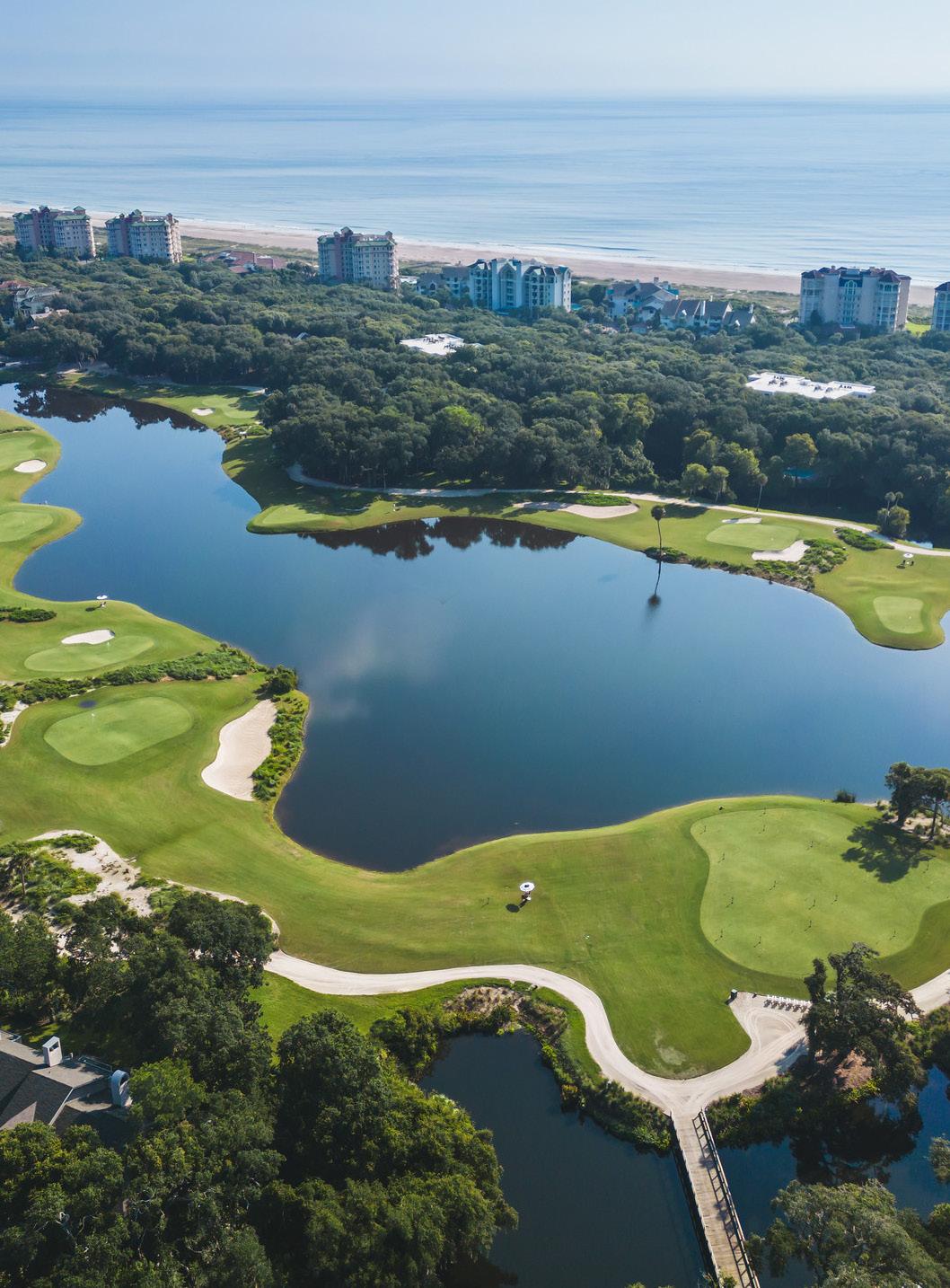
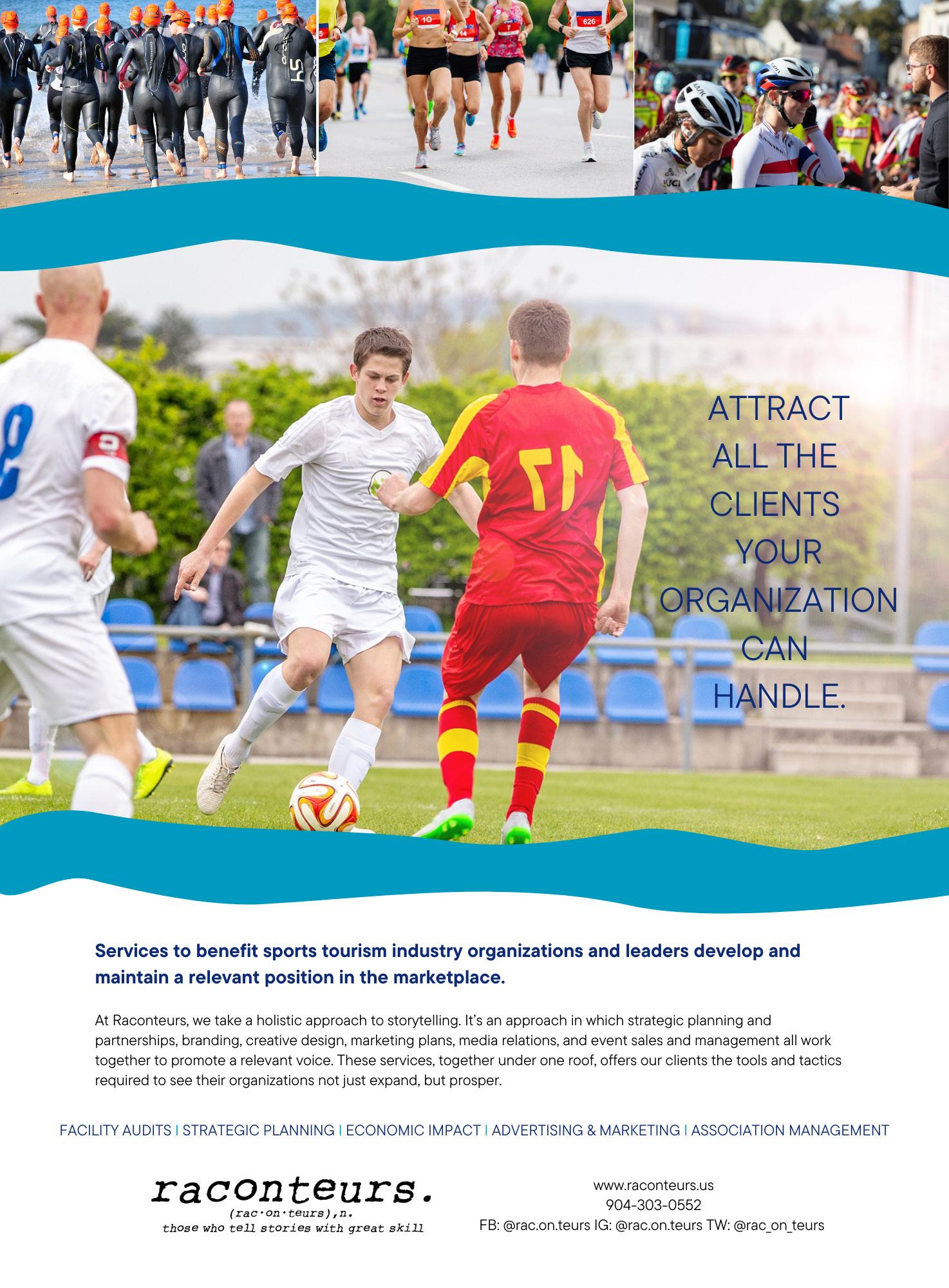
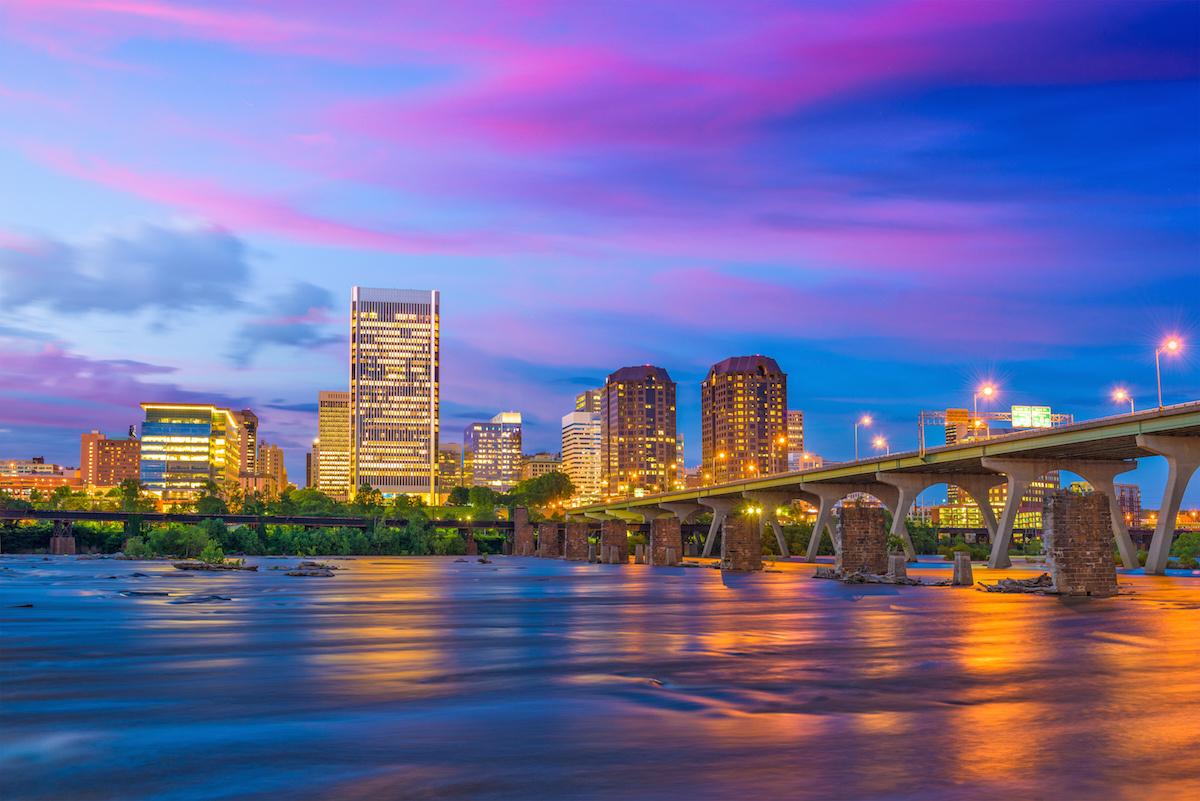



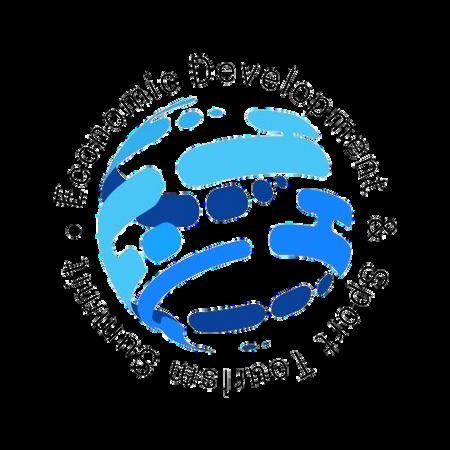
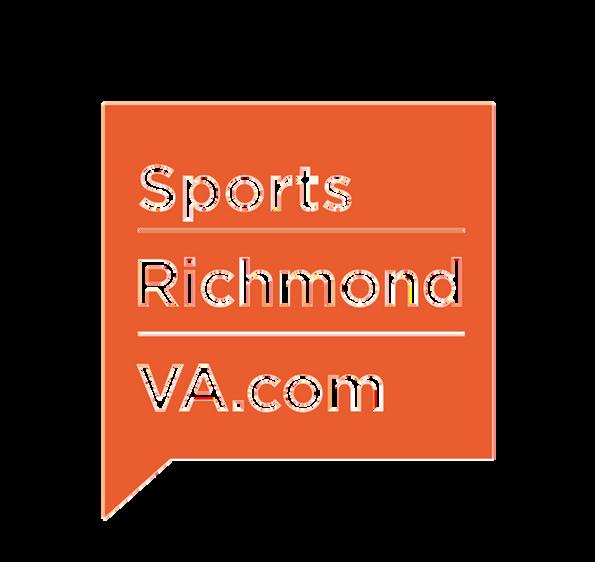

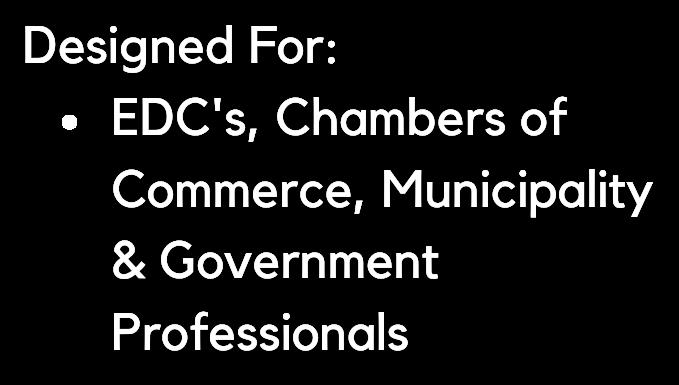


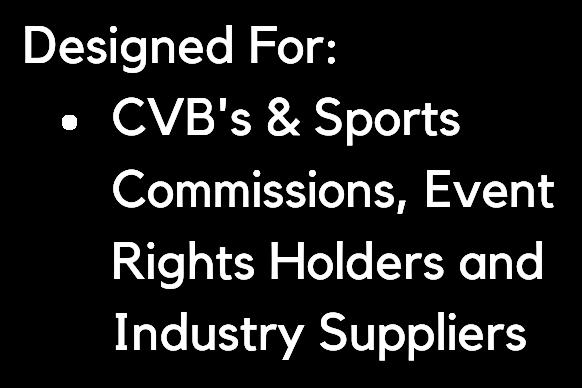

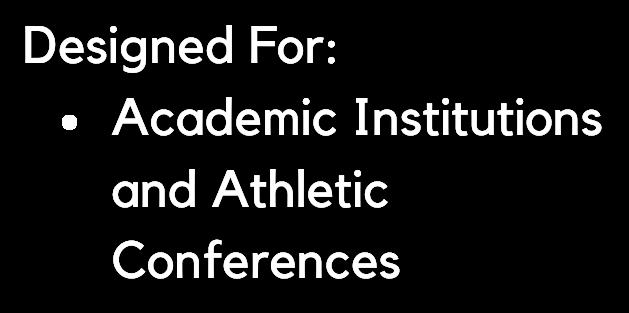
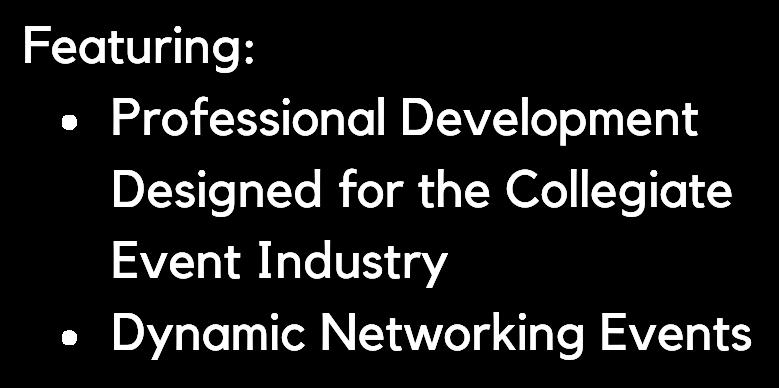
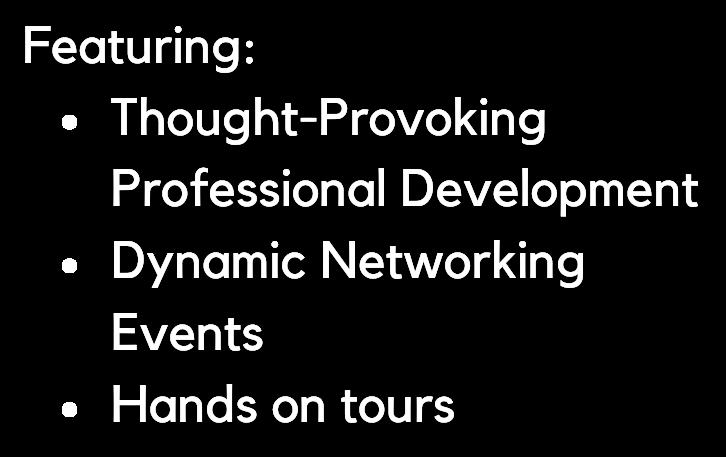
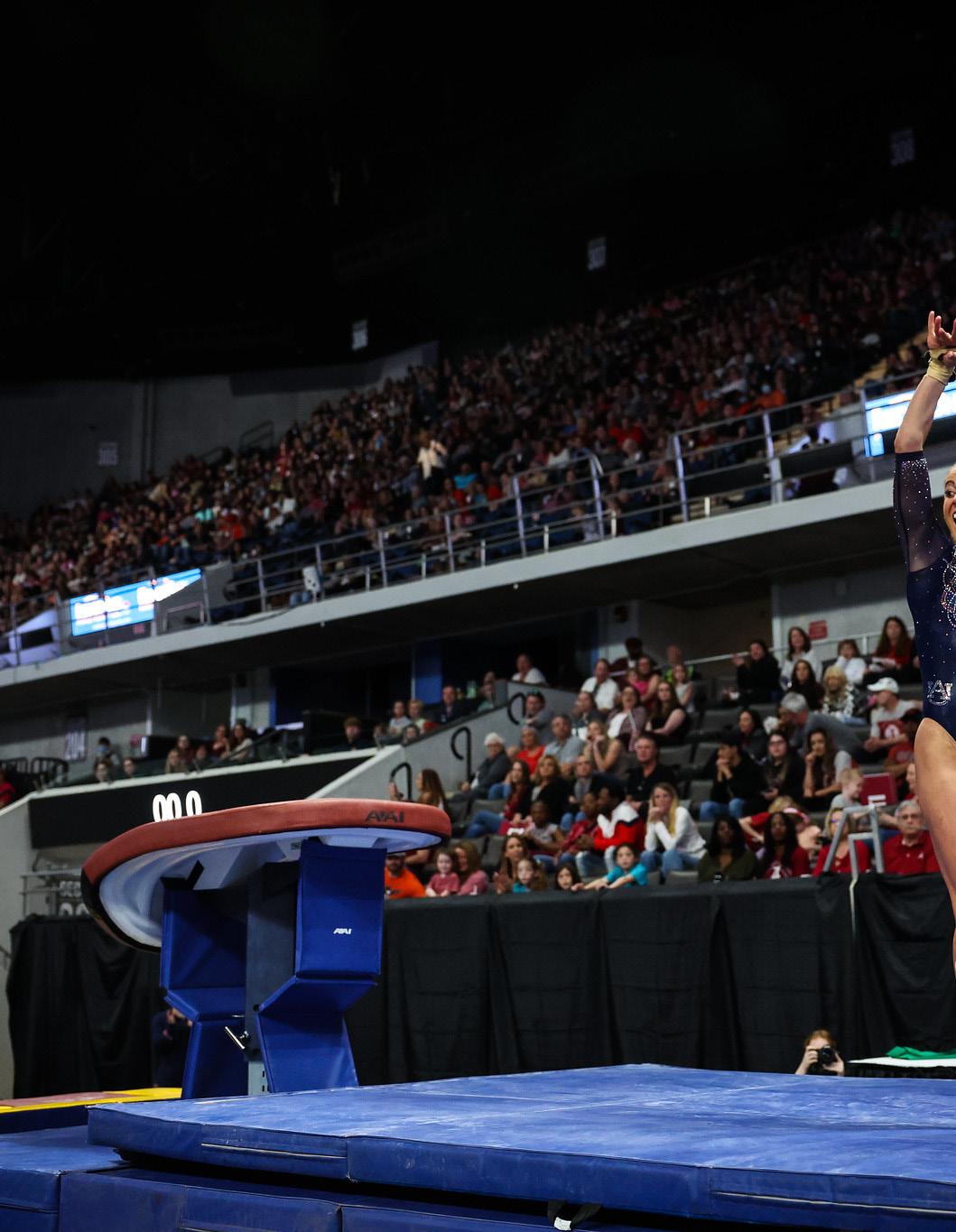
Sports Sales Manager – simply put, my job is to bring sporting events to Huntsville and Madison County that provide a positive economic impact. On a larger scale, it is finding, developing, and creating events that not only provide an economic impact but enable us to talk about all the great things happening in Huntsville – like being the #1 city to live in the United States thanks to our friends at U.S. News & World Report.

My first job in sports came as the assistant sports information director at Troy University, where I was responsible for promoting the volleyball, men’s and women’s basketball, softball, and men’s and women’s golf teams.

I love event day. Seeing everyone buzzing around the venues as the culmination of the hard work in putting together an event is the most enjoyable aspect of this job.
What did you want to be when you grew up?
I was going to be the next Chris Berman on ESPN or Vin Scully as a play-by-play person. I’ve been fortunate to use those muscles every now and then, but am glad that my career has taken a different path.

After working in college athletics for 12 years, my career path diverted to sports tourism and facility management with the City of Jacksonville. In my time at Jacksonville University, we built tourism-boosting events in conjunction with the city and were able to take that to a new level.
With my son being a teenager, I’m big on volunteering with the booster club at the school to support him and his classmates, as well as giving back to the community.
What has been your biggest accomplishment thus far in your career?
I’ve been fortunate to do some significant events throughout my career, but two stand out the most. Bringing the USA Curling national championship to the south for the first time was a lot of fun, and the event’s attendance exceeded our expectations for a winter sport in Florida. The other is the event we’re completing now, bringing a Division I college football game to Madison at our minor league baseball park – Toyota Field.
I have a TODAY folder that is my focus each day – it has my schedule, what I need to do to move my projects forward, and my list of people I need to call. Of course, things will pop up that throw that plan off, but at the end of the day, I’ll take five minutes before I leave
the office to have the game plan ready for the next day.
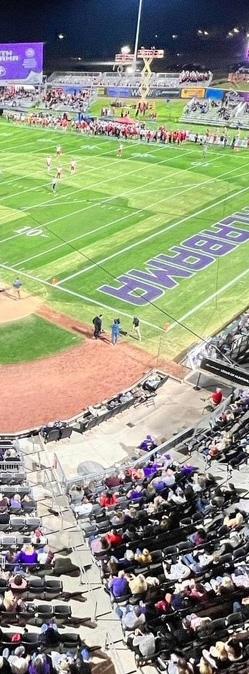
We never stop learning. I’m always looking at what other cities and destinations are doing to see if we can do something similar in our area. As our destination continues to grow and mature, we are looking at our peer group to see where we can improve and how we can make the experience better.
How are you developing key partnerships in the marketplace?
One of our key focuses right now is building partnerships – we are being very aggressive in bringing people to Huntsville to showcase the city and our venues. On any given day, I’m juggling 10 to 15 events we are preparing to host or working to bring to the city.
Four people come to mind that has had a significant impact on me and my career. My Dad is first as he taught me the rewards of hard work and the positive effect of having a strong work ethic. Second would be my first boss in college, Mike Galloway. He showed a young kid who thought he knew everything about the ropes in the sports world and life with a tremendous amount of patience as I was trying to find myself. The third was the athletic director at Jacksonville State and one of my close friends now, Joe Davidson. Last but certainly not least would be Alan Verlander – we’ve known each other for more than 20 years, worked together for 13 years, and have helped me more than I can ever thank him professionally.
What are the top 3 things you’d want to pass on as advice to a young, up-and-coming industry professional?
Build genuine relationships – you never know who you meet today might be a partner on a project tomorrow. Don’t burn bridges – the sports world is small, and your reputation is the great currency in this industry. Undersell and over-deliver – it’s old and simple, but it is true.
What are you most passionate about, and how did you get started?
I absolutely LOVE golf – got started as a kid and have made so many friendships and relationships through the game that make it love even more. And now, I get to pass it on to my son, who is on the high school golf team as an eighth grader.



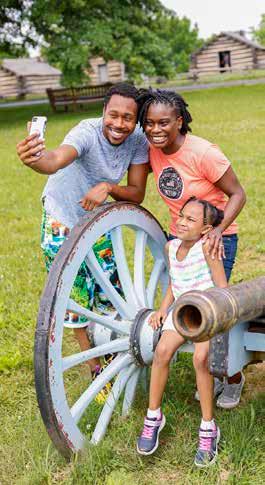

In the news, when networking and traveling to conferences and trade shows, we see and discuss the signs of substantial environmental harm. Especially over the last couple of decades, and we all witness and feel the ramifications.
Increasing Spring and Summer temperatures, evaporating glaciers, abnormal rainfalls, dried-out bodies of water, reduction in the ozone layer, and on and on. Action is needed before we face a catastrophic situation. Across all industries, sustainable practices are being adopted to reverse course and help save the ecosystem.
The overall hospitality industry is working to help drive this eco-friendly endeavor. The popularity of becoming a hotel with sustainable practices is on the rise. Eco-friendly hotels have implemented sustainable products and systems to protect the environment better. Eco-friendly properties perform green living using clean energy and
organic products, thus offering a non-toxic environment. While sustainable hotel systems are environmentally safe, they come with baggage and, in some cases, can be problematic. Here’s a quick list of eco-friendly pros and cons:

In the fight to save Mother Earth, hotels are doing their part with practical solutions.
To claim an eco-friendly lodging establishment, practices and methods must be implemented. Here are seven examples of how these hoteliers are doing just that:
The creation of sustainable hotel practices requires fundamental proficiency. The composition of a green team should include expert and interested, committed leaders, from each department. Following formal training, each committee member can be deployed to help guide others and ensure green practices are followed properly. Typically, each green team member is excited about the initial idea. Though, it is common for motivation to fall off after some time goes by. So, be sure to select highly motivated team members.
Begin by deciding the specific products and methods you will implement on-site at a property. This exercise will depend on many factors… budget, ease of use, location, availability and shipping of products, and more. For example, organic products such as natural room cleaners and bamboo bed sheets are expensive and often have availability challenges to overcome. Even the use of wind and solar energy requires large open spaces, height requirements, and even access to fields and farmland. Hotels will be spinning their wheels if there is a shortage of these elements. Using organic products is an excellent idea for hotels to reduce harmful chemicals, but be aware of greenwashing. Greenwashing is defined as products, or even organizations, promoting and promising to be eco-friendly but not practicing sustainable methods.
While very challenging, work to eliminate the
use of plastic. Campaigns to do so have been around for years. Yet only a tiny percentage of destinations have achieved a plastic-free environment.
Plastic, of course, is a non-degradable raw material, making it difficult to decompose. Plastic substances can be reduced, reused, recycled, or escape using it completely. Cotton or jute bags are preferable to plastic. Or other alternatives to plastics include clay containers instead of plastic boxes or bins. We are moving at a turtle’s pace, but we must speed up a ban on plastic use, as it is a curse to all living creatures and the environment.
Recent research shows that roughly 80,000 to 100,000 trees are cut down daily to make Paper. Deforestation has a severe impact on our environment. In our digital world, data, receipts, and piles of Paper can all be uploaded to cloud servers and accessed with a few clicks of a mouse. Going digital is and will continue to be a significant hospitality industry focus.
We have all seen and used automatic faucets in hotels, office buildings, convention centers, and restaurants in public restrooms. Faucets include sensors that dispense water only when activated. This is just one suitable water-saving method, especially at high-traffic establishments. It is estimated that automatic faucets save between 50-60% of water compared to a regular tap.
Additionally, hotels are moving to magnetic keycard technology within their facilities. The keycard connection completes a circuit to allow for the flow of electricity. Once removed from a position, the circuit is broken, thus power shuts down. This is a popular eco-friendly amenity used by hotels to save electricity.
Many areas combat the effects of drought, especially during the summer months, due to a lack of rainfall.
To overcome the situation, rainwater gathering is a proven simple and effective method to store water for usage. Hotels begin by constructing an underground compartment to steer rainwater into a tank. The water is then filtered and used for non-drinking purposes like laundry, cleaning equipment, bathrooms, floors, and other activities.

Reduce: The label says it all. Work to reduce the amount of waste created at a hotel. Using materials that are friendly to the environment will help reduce quantities. Hotels that work to determine the “sweet spot” on catering quantities are succeeding at reducing waste.

Reuse: Maybe the easiest of all three, reuse is hopefully a common practice. At any time we can reuse a container, reuse the back side of a sheet of Paper, toner cartridges, or request to keep the same set of sheets if staying for a few days.
Recycle: Building a recycling program can go far beyond the limited use of glass or plastic. Many items such as light bulbs, ink cartridges, cartons, and cans can be recycled.
Travel is one of the most beneficial activities for your mind, body, and spirit. Though, a long plane ride, or even multiple plane rides in one day, or climbing into a car for several hours in a row can be extremely taxing on the body. Therefore, we must all make sure to prepare our bodies prior to any vacation or business trip.

We are all guilty of overlooking how nervous tension can negatively affect our bodies. Pre-planning, organizing, and packing for a trip can create more stress than we all think. So, we need to allow ourselves more time to prepare which will help ensure that we actually enjoy the trips we take, no matter the reason.
Below are several things we all can do prior to traveling to guarantee we are prepared physically for the long journey we put our minds and bodies through.
Drink water like it is your job. Consuming the right amount of water is crucial for proper health function, particularly before traveling.
advance to ensure healthy
the holiday season
Remaining hydrated at a healthy level means drinking half your body weight in ounces daily, and not all at once but throughout each day. Doing so will help your immune system perform as it should without placing any strain on your health. Every organ and system in the body needs water to operate correctly, and especially our immune system. When thinking of the barriers that protect areas inside our bodies, like ears, the nose, and our throats, water is critical to their purpose.
Flying is especially dehydrating, so remember to drink water throughout each plane ride. Also, try to avoid caffeinated drinks, like coffee, and alcohol, as both cause dehydration.

Use supplements. Do you use any supplements to boost your immune system prior to traveling? Enhancing your immune system before a day of travel will help guarantee it is in the best shape.
We should all take supplements beginning five days before traveling to help boost our immune systems. Though it is important to continue doing so throughout your time on the road. Particularly, increase your vitamin C, vitamin D, zinc, and probiotics intake.
Sleep like a baby. Preparing for a memorable vacation or business trip should also include being rested before you depart. Rest, relaxation, and sleep can be placed on the back burner leading up to travel, whether it be from finalizing work projects, meeting a deadline, or even the planning stress or excitement of a trip. Our bodies perform their most valuable work while sleeping, strengthening our immune system. As we all know, when traveling we are at risk of exposure to viruses, bacteria, and illness. How many of us have gotten sick at conferences, even obtained the coronavirus while at a trade show? Consequently, it is necessary that you get your eight hours of sleep each evening for your immune system to perform optimally for your trip.
Pre-travel exercise. Likely you are going to get your steps in each day and even carry some heavy bags or set up a booth display. So, it is recommended that you maintain and get in several workouts leading up to traveling. Especially a training session just before you depart to help reduce any stress you may be feeling.
Doing so can also help relieve any nervous feelings you may have about traveling due to traffic, long lines, delayed flight times, or even catching a cab or Uber. Some colleagues go one step further by visiting a doctor for an IV drip loaded with vitamins. Have you ever done this after a long vacation or night of drinking? An IV drip helps you hydrate and packs your system with amino acids, peptides, vitamins, and electrolytes.

Take pleasure in the journey of planning a trip. Lastly, lean forward into planning your vacation or business trip. Finding joy in what you are about to experience will lower your stress level and leave you feeling positive for what is to come.
Enjoy the ride and should you pick up on any new healthy behaviors while prepping for a trip, keep them going while on a business trip or vacation, and afterwards, as they could benefit you for years to come. Before a trip or after, being mindful of your body and immune system on a regular basis will provide continual health.


I am the CEO of DS Sports Ventures event division, which consists of RussMatt Baseball, Prospect Wire, and Greater Orlando Baseball. Russmatt is the largest collegiate baseball event in the country, with more than 350 teams coming to Central Florida every February and March. ProspectWire is a national High School Baseball & Softball Tournament and Showcase company that hosts around 200 tournaments and showcases annually throughout the country. Greater Orlando Baseball is a youth tournament baseball company that organizes over 70 events annually.

After my baseball playing days ended, I coached at Rollins College (2004-2008) while earning my master’s degree from UCF Sports Business Management Program (2002-2004). After graduating from UCF, I worked for the

Florida Collegiate Summer League (FCSL) as General Manager, Vice President, and President. I am still involved with the FCSL as the Commissioner of the league.
What aspect of your job do you like most?
My favorite part of working in the sports event business is seeing the event actually happening. I always take a step back and consider how many people are impacted by the event. I love allowing kids to become better players and get exposure to the next level. It makes all the hard work worth it.
What did you want to be when you grew up?
I dreamed of being a Major League Baseball General Manager. I also loved coaching, leading to the Florida Collegiate Summer League. It was rewarding to impact so many players around the country, creating the opportunity to improve through the league and enhance their chance to move to the next level. The league has had over 500 players drafted, and 33 players make it to MLB, including guys like Jacob DeGrom, Jonathan Lucroy, Santiago Espinal, and many more. My experience there brought me to where I am now with DS Sports, and I wouldn’t have it any other way.
How did you get into this line of work?
Both of my parents were engineers at Lockheed Martin and encouraged me to go into a line of work I would enjoy. I have been in many different roles, but I have always wanted to be in a position where I could impact young people’s lives through sports.
Do you belong to any civic or volunteer organizations?
I am on the Board of Directors for the Greater Orlando Sports Commission, Florida Collegiate Summer League, Lake Mary Little League, and Seminole County Sports Hall of Fame.

What has been your biggest accomplishment thus far in your career?
Acquiring RussMatt, as it was our first acquisition under DS Sports Events.
How do you manage your daily tasks?
Prioritize.
How do you stay on top of sports tourism industry trends?
I am a member of the Sunshine Sports Council. I also love Podcasts, Twitter and Newsletters.
How are you developing key partnerships in the marketplace?
I am involved in the Central Florida community, and I attend around ten conferences yearly. I always leave meeting someone new that could become an excellent partnership for one of our companies.
Who was your greatest mentor?
Many great coaches, Dr. Richard Lapchick and Dr. Bill Sutton from the UCF DeVos Graduate Program and Sara Whiting, who was the founding President of the Florida Collegiate Summer League. Sara spent so much time with me over the 10+ years I worked with her daily. I learned the importance of relationships, trust, and passion from each of my mentors.
What are the top 3 things you’d want to pass on as advice to a young, up-and-coming industry professional?
Focus on the things you can control. You will get out what you put in. Never let someone outwork you.
What are you most passionate about, and how did you get started?
My passion is making an impact on the next generation. I was so fortunate to have so many people that were great role models and spent so much time with me throughout the years that I owe it to the next generation to give back to them. I love coaching baseball and helping the next generation develop a love of the game.



G e t m o r e f r o m e v e n t m a r k e t i n g a l l i n o n e p l a c e w i t h o u r e a s y - t o - u s e p l a t f o r m Y o u r e v e n t p a g e a u t o m a t i c a l l y s y n c s t o y o u r P l a y e a s y p r o f i l e , a n d u p c o m i n g e v e n t s w i t h t i c k e t a n d r e g i s t r a t i o n l i n k s a r e a d d e d t o P l a y e a s y ' s g l o b a l E v e n t M a r k e t p l a c e U s e a n y r e g i s t r a t i o n a n d h o t e l l i n k s t o g r o w y o u r e v e n t s w i t h e a s e
T a r g e t t h e e x a c t t y p e s o f u s e r s y o u w a n t t o r e a c h P l a y e a s y a l l o w s y o u t o m a r k e t y o u r e v e n t s i n o n e p l a c e , w h i l e g i v i n g y o u m o r e o p p o r t u n i t i e s t o r e a c h a b r o a d e r a u d i e n c e B o o s t y o u r e v e n t t o T e a m S n a p ' s a u d i e n c e t h r o u g h m o n t h l y n e w s l e t t e r s a n d o r g a n i z a t i o n - b r a n d e d a d s G r o w y o u r e v e n t , g a i n m o r e a t t e n d e e s , i n c r e a s e f o l l o w e r s a n d e v e n t p a g e v i e w s b y r e a c h i n g s p e c i f i c s p o r t s a u d i e n c e s a t s c a l e .
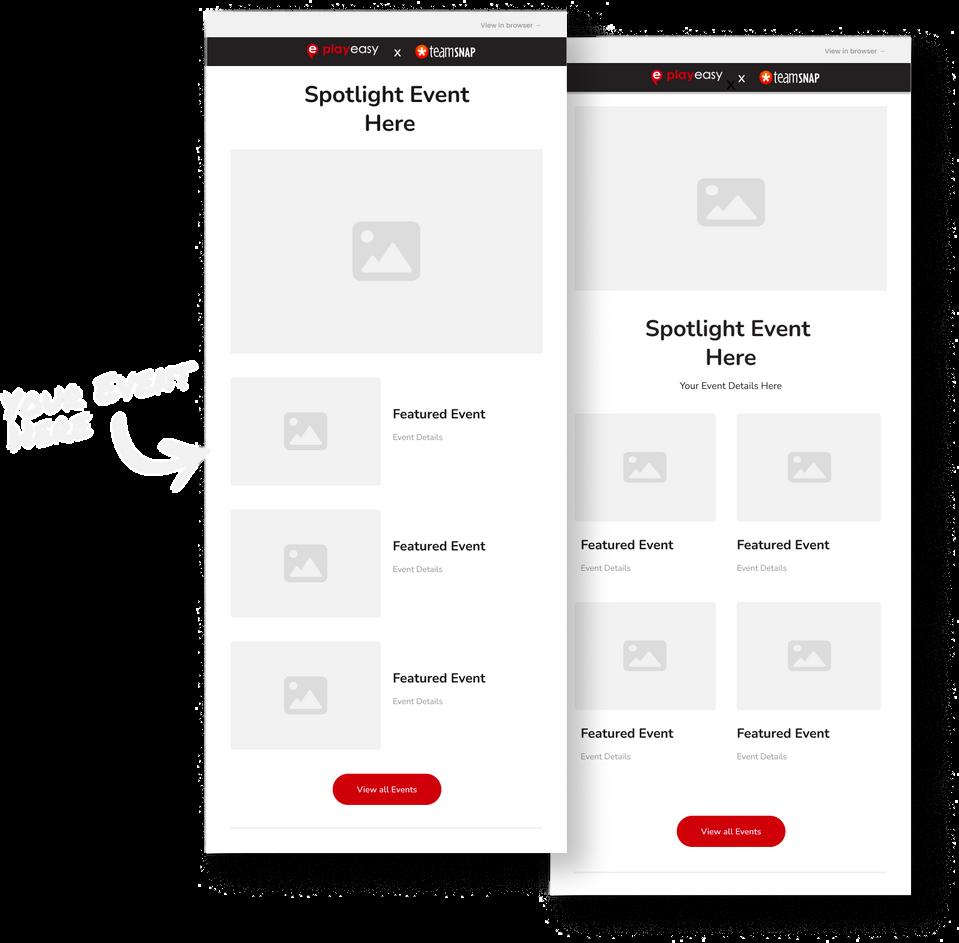
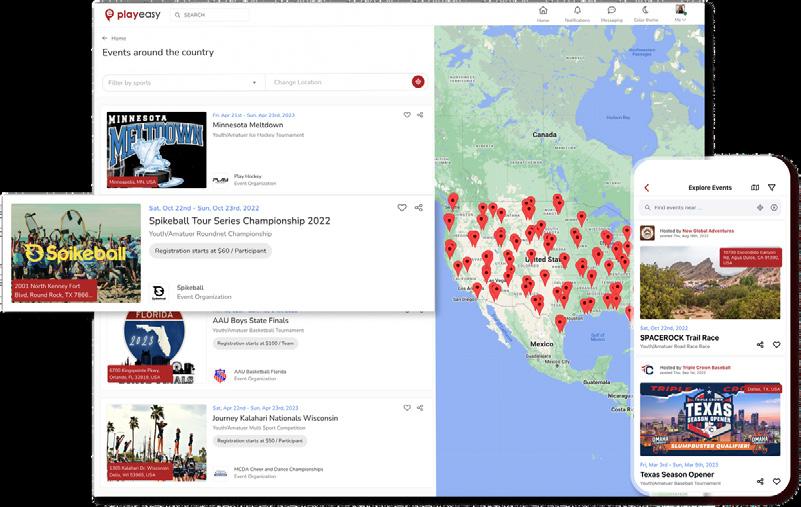
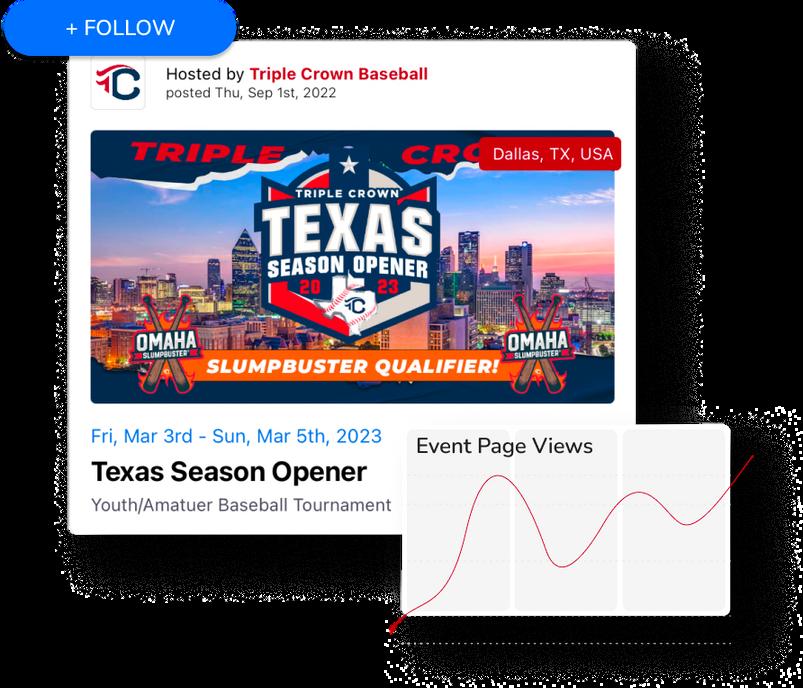
T r a c k y o u r r e s u l t s a n d g r o w t h w i t h o u t t h e w o r k G e t n o t i f i c a t i o n s a n y t i m e u s e r s f o l l o w y o u r o r g a n i z a t i o n o r l i k e y o u r e v e n t M e a s u r e t h e q u a l i t y a n d q u a n t i t y o f v i s i t o r s t o y o u r e v e n t p a g e a n d o r g a n i z a t i o n p r o f i l e w i t h r e a l - t i m e a n a l y t i c s

Reduce your carbon footprint and manage a fantasic ecofriendly event with these sustainable event ideas.
Becoming an eco-friendly event director is no longer a fad. It is becoming the norm that the sports tourism industry must embrace.
The concepts below help show that there is no reason to be daunted at managing a sustainable event.
Tracking and being conscious of your carbon footprint is a great first step towards making significant changes.
Yes, “Sustainability” has become a buzzword. Though a worthwhile one at that. Changing habits and methods of work are not always easy. It can be even more challenging to prove to sponsors and spectators that making the planet a priority is good for business. When considering implementing a green effort at your events, reconsider the term “sustainable;” instead, aim for renewing. What does all that mean? Well, sustainability suggests maintaining, whereas renewing brings growth, renewal, progress, and even restoration.
With that in mind, let’s jump into a few concepts that can reduce your carbon
footprint and help manage a greener event:
Select a green event venue.
Green event venues actively strive to become more sustainable and meet annual guidelines and standards. Always look for, or ask if they have sustainability certifications. Some examples of certificates to look for include: the International Association of Conference Centers Green Star certification, Leadership in Energy & Environmental Design certification (LEED), and more.
Be sure to have a list of sustainable necessities at the venue, like renewable energy sources, compostable or reusable dining ware, a venue designed to use natural lighting, and best practices for energy efficiency, like motion-controlled light switches.
Be mindful of accessible venues.
When selecting a venue, even if the venue satisfies sustainability standards, it does not matter if your athletes, coaches, and spectators must travel far distances to get there. Not to mention the possible use of wasteful transportation methods. Your efforts to choose a green venue will be erased by the creation of carbon
emissions your attendees will produce to arrive. Choosing a venue that is a short plane or train ride would be ideal. Better yet, use public transportation. If your event is national or international, select a venue near a transportation hub such as a train station or airport.

Public transportation can be challenging when visiting an unknown destination. So, consider providing incentives to those who carpool. A few examples might be VIP parking, discounted parking, discounted event tickets, priority seating, or even discounts on food and merchandise.
Create a pre-event survey sent out to your attendees, asking how far they are coming to attend your event. When simply asking for a zip code, you will paint a detailed picture of where most of your attendees come from. This information may already be a requirement of most grant applications and awardees.
The data can be beneficial when determining the convenience of future event facilities. Remember to include questions that ask how they made it to your event (i.e., bus, personal car, carpool, Uber, etc.). This will also provide feedback on your pre-event public transportation outreach options and dictate if they were effective.
Create entertaining contests to engage attendees by asking them to tag the event and use your hashtag when posting about their carpooling experience when traveling to your event. Thus, creating content for your social media and various marketing campaigns.
Make use of pre-event and digital surveys.
Partner with an end-to-end event app
Instead of relying on paper and printed communication materials, such as banners, brochures, and discount coupon cards, switch to an app instead that can provide the following benefits:
• Registration and Credentials
• Digital tickets
• Interactive digital schedules and maps

• Digital brochures
• Expo documents
Include a carbon offset discount on your registration fees
How many wax or plastic cups have we all purchased over the years for events? These products end up in landfills and never decompose.
Provide a carbon offset discount to athletes that agree to bring a reusable bottle for water and isotonic coolers. This simple task will encourage athletes to become conscious about offsetting their carbon emissions when competing.
Ask them to bring the bottle to registration when checking in to confirm its use.
Consider a potential sponsor’s commitment to sustainability. Vet companies before your outreach to ascertain their influence on a cleaner planet. Do not ask them if their products are produced with environmentally friendly business standards.
Usually, organizations actively involved in green activities are not shy about it. Pursue companies that use recycled materials and invite them to become a sponsor of your actions.
Companies committed to sustainability goals will love the opportunity to promote their brand by hosting a booth or acting as a guest speaker to tell the value of being environmentally conscious and how that is important to their overall cause.
Just because you might be able to play anywhere doesn't mean you should. Bring your next sporting event to Pensacola for the facilities and hospitality. Stay for the historic culture, unique adventures, and award-winning sugar-white beaches.

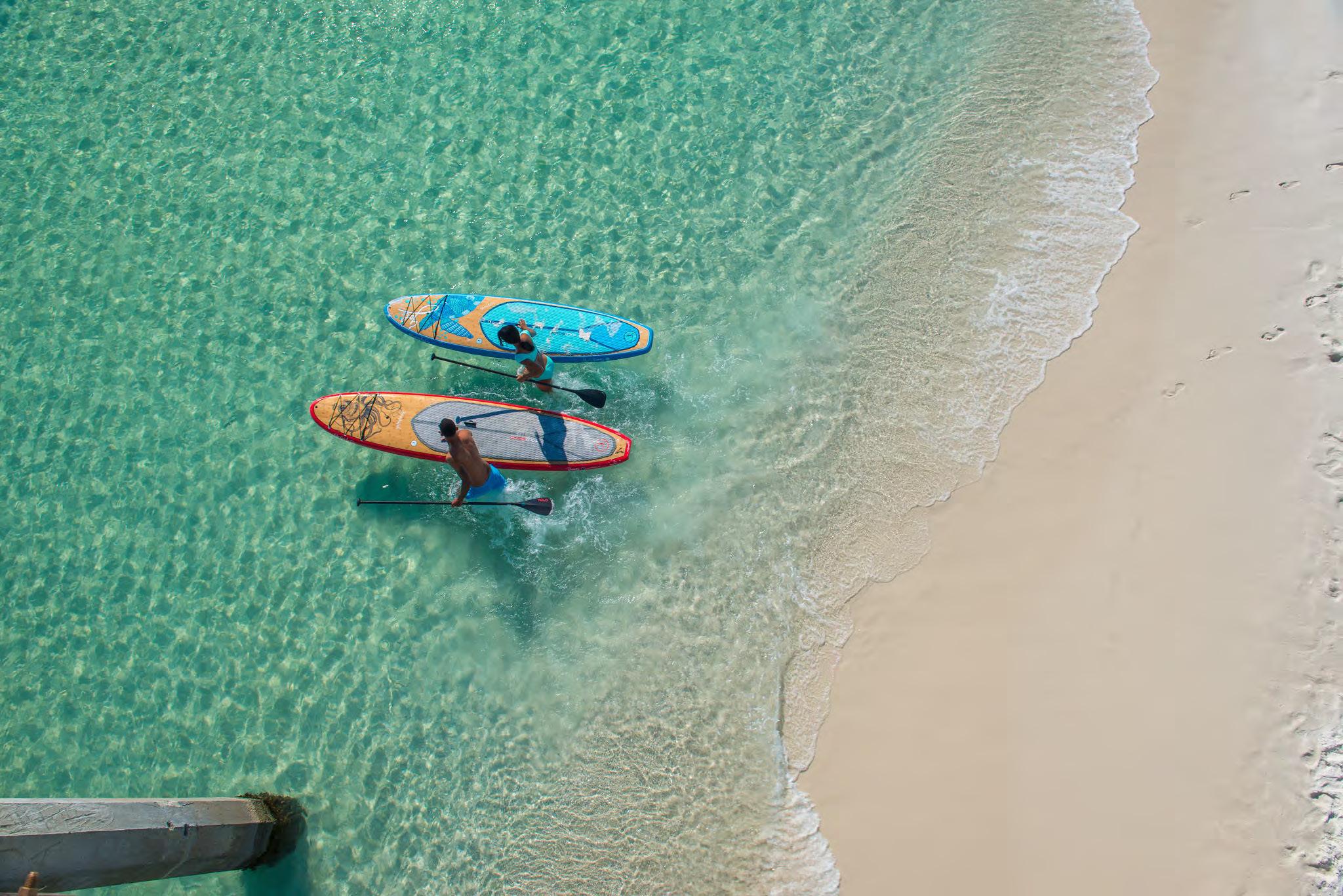
Check in every issue for the unfiltered thoughts of our guest writers and contributors as they discuss the hottest topics in sports tourism. Join the conversation by tweeting us: @pushsports
In this issue, our guest writer discusses the subject of Diversity, Equity, and Inclusion within the sports tourism industry.
The sports tourism industry still can’t get DEI right. After over two years of diversity work, our industry still has a long way to go.
We are still amidst a national reckoning in this country. Founded on “liberty and justice for all,” we have prolonged our struggle with the stark inconsistency that not all men and women are treated equally. We work in the outwardly neutral profession surrounding tourism, sports tourism, and event planning and are involved in the continuance of cultural inequalities. In the last couple of years, we have seen improvement, but the rate of progress is troubling.
As killings and protests became the norm on the daily news, our industry, among many others, took notice. Some organizations, including destinations, event rights holders, national governing bodies, and vendors, rushed to show solidarity through social media. Suddenly, we experienced a sense of urgency among C-level executives, human resource departments, and public relations pros to shift to representation highlighting all of humanity, especially those who identify as people of color. Compared to other industries, we were no different, though we have a ton of work yet to accomplish.
We have witnessed some organizations in our industry make formal pledges to improve diversity within their operation, holding themselves accountable to change. Others have hired people of color. Boards of directors are attempting to become more diverse, while some have even worked to establish guidelines for equitable compensation and career advancement for people of color. This action is taking place, and it’s thrilling.

Though still, we as an industry can do more. The organizations within our sector remain overwhelmingly white. Us, as we emerge from a stressful time tarnished by a global pandemic and characterized by a social justice effort, we can shift our values through our actions while conducting business. We can proactively build an industry that includes everyone, regardless of race, gender, sexual orientation, or physical ability, which is welcome to contribute and supported to succeed.
With all that said, the effort has settled down, and we are allowing this moment to pass without making considerable changes. Each organization within sports tourism should summarize why the standards of diversity, equity, and inclusion at their respective places of business are essential. They, too, should identify and prepare an action plan as to what they hope to accomplish over the next three to five years. A few social media posts do not get the job done or solve anything. You cannot just say you care about the work and then do nothing.
Regarding DEI, I’ve developed a certain level of pessimism. Because if we were to challenge organizations in our industry to establish a DEI action plan, I feel most would fail to articulate their desire to achieve quantifiable goals. Though it would not be a particularly difficult task, I foresee the action plans being vague and lacking substance. We can succeed only what we can measure; therefore, organizations should include quantifiable goals—for example, increasing the number of people of color through new hires by a certain percentage over a specific period. But, organizations must strategically invest and plan in organizational diversity to accomplish a goal such as that. Will they?
Soon, I want to see organizations prove their DEI claims by acting on their intentions for change and building by using a broader community to achieve annual goals. Outreach to every population sector will be essential so that no one feels left out. Marketing personnel must build campaigns and collateral relevant to all ethnic groups to enhance a sense of inclusion. I also hope to see our industry build better relationships with higher learning institutions including historically black colleges and universities, thus providing opportunities earlier to students making career decisions and providing the industry with a more diverse pool of job candidates. Organizations must also get creative by crafting internal programs that encourage the perspective of cultural experiences within management teams that can help design a supportive workplace environment for everyone.
We are almost back to pre-pandemic business and societal practices. Therefore, I hesitate that we’ve already forgotten the public outcry from the last couple of years as an industry. Furthermore, I struggle with believing that most organizations will strive to make a change but rather be reactive when faced with protest and instead follow a path of least resistance. I’m confident most will be motivated by hesitation, in that we will see organizations make safe decisions rather than risk the social fallout from an unintended mistake. Therefore undoing the valuable progress, albeit tiny and slow, of DEI. As John Wooden said, “failure isn’t fatal, but failure to change might be.” Few leaders will likely realize this.
I’m sure that some believe our industry has changed. I feel as though we are nowhere near where we should be. To those who disagree, I present a simple challenge… dare to do better and prove myself wrong.


